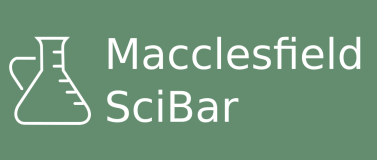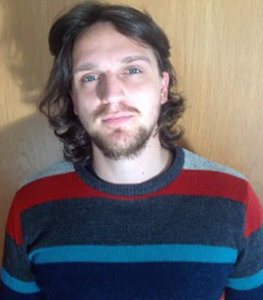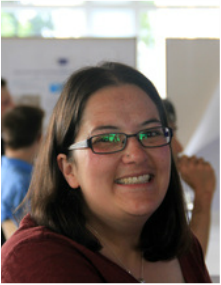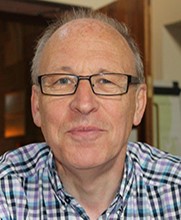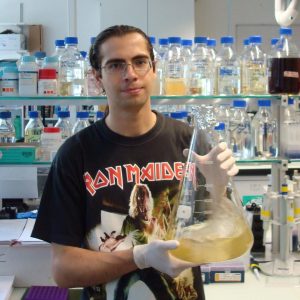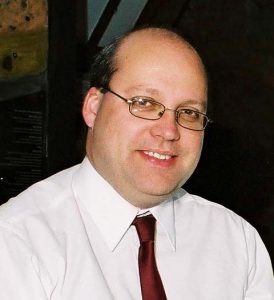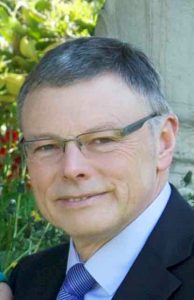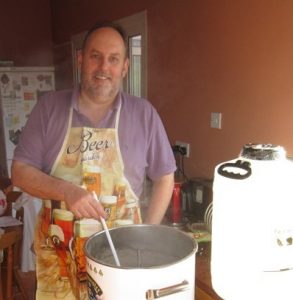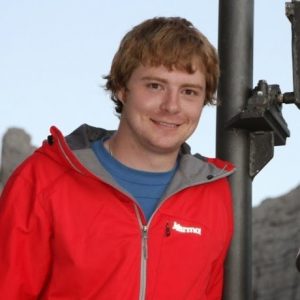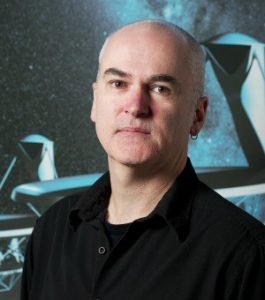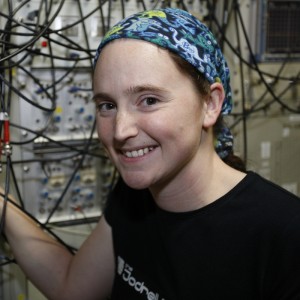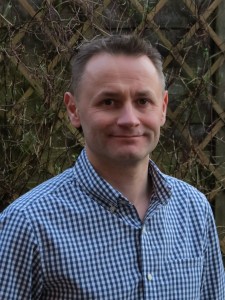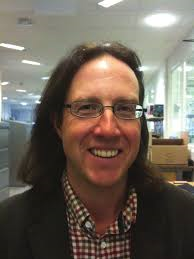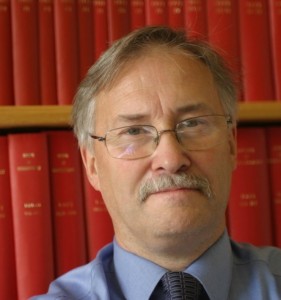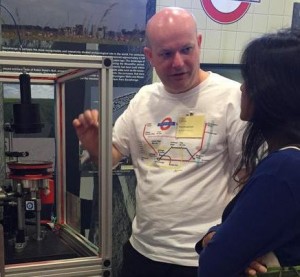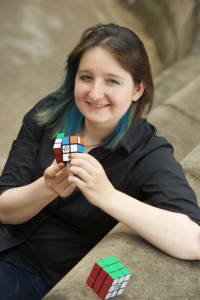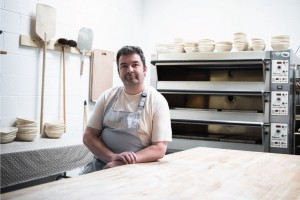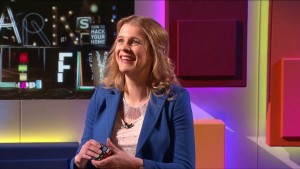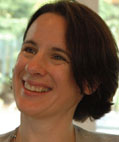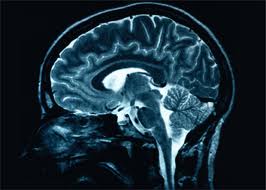Slowing the Flow – Flood Risk Management in a changing climate
Monday 27th November 2017
Speaker: Dr David Brown, Environment Agency, Richard Fairclough House, Warrington
The talk will cover an overview of flood risk within the area, how the Environment Agency seeks to manage flood risk, and the latest on Natural Flood Management.

Energy Demand and Social Life
Monday 23rd October 2017
Speaker: Torik Holmes, PhD Student, DEMAND Research Centre, University of Lancaster
A discussion on how energy demand can be usefully understood as being related to the everyday practices that make up our social lives.

A Story of Radioactivity: A Glowing Tale
Monday 25th September 2017
Speaker: Dr Louise Natrajan, School of Chemistry, University of Manchester
Shortly after the discovery of radioactivity it was thought to have health benefits, yet now it is considered harmful. Louise will discuss myths surrounding radioactivity and show how the fluorescence of uranium can be used to help clean up nuclear wastes in the environment.

Powered by the Dane: The Havannah Weir Hydro-Electric Scheme
Monday 24th July 2017
Speaker: Peter Aston, Congleton Sustainability Group
Moving away from fossil fuels is the virtually accepted energy policy for most governments, but can local communities contribute? The Congleton Sustainability Group has been pursuing hydro power from the River Dane for more than 10 years. Peter Aston, Chair of the group, will describe the challenging journey through failures to the current proposed installation at Havannah Weir, a mile north of Congleton.

Biocatalysis: The Future of Pharmaceuticals
Monday 26th June 2017
Speaker: Dr Fabio Parmeggiani, Research Associate, School Chemistry, University of Manchester.
This talk will include a short introduction to the various types of cascade biocatalysis and look at how the recent advances in molecular biology led to the development of novel sustainable and highly efficient processes for the synthesis of chiral pharmaceutical intermediates, with the potential to revolutionise the future of the fine chemical industry.

Housing, Energy and the Salford Energy House
Monday 22nd May 2017
Speaker: Professor William Swan, Professor of Building Energy Performance, University of Salford. Simon Steel, PhD student at University of Salford.
“How we use energy in our homes is complex – it is a physics problem, it is an engineering problem, but it is also a social sciences problem. This complexity has meant that UK policy has often fallen short. This talk will try to make some sense of the issues of energy consumption in our homes and some of the work in the Salford Energy House, a full scale Victorian House in an environmental chamber that has tried to make sense of a subject area that affects us all.” – Professor William Swan
Simon Steel, University of Salford, is involved in the Salford Energy House looking at ‘materials for energy’ has worked on sensors, data and experiment planning at the Energy House. He will be with us to talk about the house, his own research and the wider research programme.

Buckton: the Forgotten Castle of Stalybridge
Monday 24th April 2017
Speaker: Mike Nevell, Centre for Applied Archaeology, University of Salford
This talk will discuss the re-discovery of Buckton Castle though the excavations of 2007 to 2010 by the University of Salford. Set high on the edge of the moors overlooking Stalybridge, this site had a strategic role in guiding Cheshire’s ‘pan-handle’ in the 12th and 13th century. Excavation and documentary work now indicates that the site was built by the Earl of Chester, though possibly never finished.

Fast Radio Bursts
Monday 27th March 2017
Speaker: Ben Stappers, Professor of Astrophysics, Jodrell Bank Centre, University of Manchester
Fast Radio Bursts are enigmatic bursts apparently at cosmological distances, useful for studying the Universe’s missing matter and the extremes of their origin.

Life And Death Of Stars
Monday 27th February 2017
Speaker: Chris Sweetman, Macclesfield Astronomical Society
The evolution of stars and their life span involves many phases, processes and factors that have a bearing on the duration and eventual outcome for them. This talk covers how it is thought stars are born and where, what happens through their varied life spans and the eventual end phases that stars go through.

Quantum Biology
Monday 23rd January 2017
Speakers: Alex Jones, Sam Hay & Nigel Scrutton, Quantum Biology team, School of Chemistry, University of Manchester
Can the strange quantum mechanical properties of sub-atomic particles directly effect the wet and noisy world of biology? Sam Hay, Alex Jones and Nigel Scrutton will discuss this exciting and burgeoning area of research, with examples that include enzyme catalysis and animal magnetoreception.

Barley, Hops and Yeast: An Introduction to the Science of Brewing
Monday 28th November 2016
Speaker: Steve Horner, Ex-AstraZeneca Scientist and keen amateur brewer.
The talk will outline some of the process stages involved in the brewing of traditional beers, focusing on 3 of the key ingredients: malted barley, hops and yeast. In general terms, the talk will discuss how these ingredients contribute to the production of one of the nation’s favorite drinks, with reference the important biological and biochemical changes taking place at each stage of the brew.

The Energy-Carbon Conundrum: Carbon Capture and Storage as a Key Part of the Solution to Climate Change
Monday 24th October 2016
Speaker: Dr Iain MacDonald, Senior Programme Manager, Qatar Carbonates and Carbon Storage Research Centre (QCCSRC), Imperial College London.
The talk will discuss the technical and political problems that proponents of the carbon capture storage chain must address if carbon capture and storage (CCS) is truly going to make a lasting global impact. For example, the potential underground storage areas are by no means distributed evenly over the Earth’s surface; there are many unresolved safety and legal issues relating to transport and storage.

Using the Force: How Cells Feel Their Environment
Monday 26th September 2016
Speaker: Ben Stutchbury, Post Graduate Research, Life Sciences, University of Manchester
The talk will cover the basics of cell biology, but will focus on how cells know where they are in the body. The cell can ‘feel’ the mechanical properties of its environment using structures called focal adhesions, which act like a cell’s molecular hands. Some tissues, like the brain, are very soft and squidgy, while others like muscle and bone are much more rigid. We know that these environmental, mechanical signals drastically influence how a cell behaves. However, we don’t yet know HOW the cell is actually sensing these signals. Using audience participation, lots of cell videos and more ex-cell-ent puns than you can shake a cell-ery stick at, I will explain what our lab has been doing for the last 3 years to try to figure this out and, more importantly, why this information is vital for improving the treatment of many diseases, especially cancer.

Astronomy with the Square Kilometre Array: The World’s Largest Radio Telescope
Monday 25th July 2016
Speaker: Dr Tyler Bourke, Project Scientist, SKA Organisation, Jodrell Bank
Jodrell Bank is the Headquarters for the Square Kilometre Array (SKA), which will be built in remote locations in Australia and South Africa. This will be the world’s largest and most sensitive radio telescope, and with it astronomers will study in unprecedented detail such events as the birth of the first stars in the early Universe, the merger of galaxies and supermassive black-holes (through gravitational waves), and the formation of planets around Sun-like stars. A taste of the exciting science that will be undertaken with the SKA will be presented.

Around the Universe in 60 Minutes
Monday 20th June 2016
Speaker: Dr Megan Argo, Astrophysicist, University of Manchester and Jodrell Bank.
A whirlwind tour of the Universe, starting from the Earth-Moon system and heading out through the solar system, to the nearest stars, the Milky Way, local galaxies, the expansion of the Universe, and ending with the question of what happens in the future.

Sustainable Food Production – Solving The Dilemma Through Innovation
Monday 23rd May 2016
Speaker: Dr Rob Gladwin, Head of Business Development and Sustainability, Crop Protection, BASF
With up to 9.7bn mouths to feed by 2050 against a backdrop of urbanisation, climate change and reduced availability of resources such as water, we face a massive sustainability challenge. This challenge can only be met through the use of the best available current and new technologies and within a political environment conducive to innovation. Crucial technological developments such as pesticides and biotechnology are coming under increased scrutiny by NGOs and regulators, which in turn makes investment decisions into new innovations increasingly challenging.
I will discuss some of the dilemmas and challenges we face, and move on to cover thoughts on how we might move towards a more sustainable food production system which meets the financial needs of the grower, societal needs for an adequate supply of safe affordable food, whilst minimising our environmental footprint.

BigData – “The Revolution That Will Change All Of Our Lives”
Monday 25th April 2016
Speaker: Dr Al Dossetter, MedChemica Ltd
BigData is a new buzz term thrown around in the Media but what is it all about, why should you care? How does it work? Where can we see examples? How it is used in science? For example in MedChemica, we use the techniques to speed up the design of new pharmaceutical treatments.
The talk will take a tour around real life examples, stuff from our company, and what the future holds.

Not Passengers But Crew – The Microbial World Within Us
Monday 28th March 2016
Speaker: Professor Ian Wilson
We like to think of ourselves as individuals, but in fact we provide homes for a vast array of, generally, beneficial symbiotic microorganisms that live on us. The collection of microbes that we all carry around in our GI tracts, known as the gut microbiome, numbering in excess of 1000 species, form an important “external organ” (that weighs about 1Kg) without which we would not function properly.
The development of new techniques is allowing us to get an ever increasing understanding of the complex interactions between host and microbiome. This presentation will seek to explore the positive impact that a properly functioning microbiome has on health and well-being, and contrast these with negative effects of a dysfunctional one.

The Past, Present and Future of Doggerland
Monday 22nd February 2016
Speaker: Dr Philip Murgatroyd
Doggerland, the area between what is now the British Isles and mainland Europe, was finally covered by the North Sea around 6,200 BC. Prior to that it was home to a vibrant landscape of plants, animals and people and recent scientific discoveries suggest it was more than just a land bridge between Britain and the continent.
Doggerland could hold vital information regarding the introduction of farming to the British Isles. Computer simulation, seismic mapping of the Mesolithic landscape and the development of ancient DNA analysis allow us for the first time to start to build a more complete picture of this important, yet largely unexplored, landscape.

Math’s Greatest Unsolved Puzzles
Monday 25th January 2016
Speaker: Katie Steckles
Katie gives talks about maths in schools, at science festivals, on BBC radio, at music festivals, as part of theatre shows and on the internet. She enjoys doing puzzles including solving the Rubik’s cube.
This will include open and unanswered questions at the forefront of maths, and a bit about the way maths research works, alongside some puzzles for the audience to have a go at in between. She will be happy to put in some harder puzzles if we feel we would be able to deal with that!

Breaducation – the Art and Science of Fermenting Dough
Monday 23rd November 2015
Speaker: Paul Robinshaw
Proud to be named after the ingredients they use, ‘Flour Water Salt’ is a bakery born out of a love and satisfaction for hand made bread. This love came about one day at a bread making course where Paul Robinshaw, A former high level IT specialist, baked his first batch of loaves. Although, in his words “the first loaves were all over the place” the satisfaction of having something he’d produced was immediate. He was hooked and set about learning as much as he could about artisan baking.
The first loaves were baked from his home oven, but word got out about these hand made loaves, using only the best organic ingredients and the business grew from strength to strength. Paul left IT and focused on the baking and is now situated in Macclesfield with a small family run team producing bread slowly, the way it should be without any additives or improvers. Each loaf taking a full day to produce, resulting in delicious bread that has more and more people in the North queuing up to sample.
Moving from a fast paced, high paid life in IT, to an artisan baker was a brave move to make, but one that has paid off completely. Speaking with Paul it is obvious to see he loves what he does and people love the bread – ‘flour, water, salt’ produce. There is a great selection of breads now, all baked with the same care and attention, but for us the sourdough is king. In a world where life is speeding up and technology is taking over, there is something wonderful about the perfect simplicity of this slowly prepared loaf with only three ingredients ‘flour, water, salt’ that makes sourdough so special.

Monday 26th October 2015
Speaker: Prof Danielle George
Professor Danielle George is professor of radio frequency engineering and Associate Dean for Teaching and Learning at the University of Manchester. She has previously presented the 2014 Royal Instition Christmas Lectures.
Professor Danielle George is Associate Dean for Teaching and Learning in the Faculty of Engineering and Physical Sciences, and a Professor in the Microwave and Communications Systems research group at the University of Manchester. She completed her BSc in Astrophysics, MSc in Radio Astronomy at The Victoria University of Manchester based at Jodrell Bank Observatory, and her PhD in Electrical and Electronic Engineering with UMIST. She worked at Jodrell Bank Observatory as a senior Radio Frequency Engineer until 2006 when she too up a lectureship post in the School of Electrical and Electronic Engineering. She was awarded a Professorship earlier this year at the age of 38.
Danielle’s expertise in radio frequency and microwave communications has a wide range of applications across a number of industries. To date most of her research and development work has been carried out on a variety of aspects relating to ultra-low noise receivers for Space and Aerospace applications. She is involved in the $1B astronomical instrument, the Square Kilometer Array (SKA), is the UK lead for amplifiers for the $1B Atacama Large Millimeter Array (ALMA) telescope and has worked with NASA and ESA on the development of instrumentation for researchers exploring the Big Bang. She has worked with agriculturists on the development of instrumentation to measure water usage, and with a number of multi-national companies such as Rolls Royce where she worked on industrial gas turbine engines.
She thoroughly enjoys the teaching aspects of her career and lectures to both undergraduates and postgraduate students, in particular Electronic Circuit Design to undergraduates and Microwave Systems to MSc students. She is passionate about raising public awareness of the positive impact engineering has on all aspects of our everyday lives and highlighting to young people the immense depth and breadth of opportunities a career in engineering can offer.

Asteroids and Comets, Meteorites and Dust
Monday 28th September 2015
Speaker: Jamie Gilmour
Asteroids and comets are the leftovers of the formation of planets like ours. We can study them by observation, by visiting them, and by studying samples that are brought back to Earth or arrive here serendipitously as meteorites and interplanetary dust. The Rosetta and Dawn missions have recently visited comets and asteroids, respectively, while samples have been returned by the Hayabusa (asteroid) and Stardust (comet) missions. After a short presentation on what we’re learning from these various approaches (and a chance to see some meteorite samples) there will be a discussion of what we are learning about the origin and evolution of our solar system.

Pain: The Art And Science Of Why People Hurt
Monday 27th July 2015
Speaker: David Nolan
Over the last 30 years medicine has improved, survival rates and quality of life have improved in a range of disorders such as heart disease and cancer. Tax payer’s money well spent! However, despite the funding of investigations and treatments, persistent pain states are now a bigger problem than ever before. This light-hearted lecture will look at recent developments in the “pain world” that try to shine a light on why we seem so ineffective in treating pain.

When Galaxies Collide
Monday 23rd February 2015
Speaker: Megan Argo
Looking at the evolution of galaxies since the Big Bang; their rather messy collisions and interactions; and the ultimate fate of our own galaxy, the Milky Way.

Engineering Sport: How Do We Improve Sporting Equipment?
Monday 26th January 2015
Speaker: Tom Allen
The sports equipment market is valued at ~£50 billion, with brands investing heavily in R&D. This presentation will show how we design and test sporting equipment.

Physics at the Interface: Links Between Technology, Vision and Movement
Monday 24th November 2014
Speaker: Rahul Peck
An overview of the therapeutic strategies employed in the fight against cancer, including biological and immunological therapies.

Physics at the Interface: Links Between Technology, Vision and Movement
Monday 27th October 2014
Speaker: Helen Gleeson
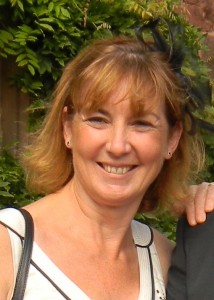
Liquid crystals are best known for their use in displays, including TVs – they are the ‘LC’ in ‘LCDs’. The materials that allowed this technology to emerge were developed in the 1960s and 1970s and the physics and engineering breakthroughs that followed allowed a whole new approach to mobile communications that has changed society over the last generation. There is more to come! Although liquid crystal displays are now a mature technology, new applications are emerging that are allowing a better understanding of biological systems, including vision in some animals. One of the inventions that is exciting my group at the moment is that of switchable contact lenses – an exciting alternative to bifocal glasses.
This month Helen Gleeson from the University of Manchester will describe the beauty of liquid crystalline materials and explain the science behind some of the diverse applications which we can expect to have a big impact on our lives in the future.

DNA in Medicine: Promises, Challenges and Everyday Applications
Monday 22nd September 2014
Speaker: Jamie Ellingford
Jamie Ellingford is from the Centre of Integrated Genomic Medical Research at the University of Manchester.
Jamie will be talking about the latest technology and software available to generate and analyse DNA, and discuss both the benefits and challenges of analysing patient DNA in a clinical environment.

Harvesting Sunlight: Can Solar Power Meet Our Requirements For A Sustainable Energy Supply?
Monday 28th July 2014
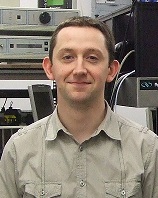
Speaker: Darren Graham
Every year we are using the same amount of energy that it has taken the Earth one million years to store in fossil fuels. We are increasingly aware that the burning of our precious fossil fuels cannot continue for long, but what viable alternatives exist? One answer is solar power, but can solar power alone meet our growing energy demands?
Dr Darren Graham from the Photon Science Institute
of the University of Manchester will lead the discussion into the
requirements of a sustainable energy source, reviewing current solar
technologies and introducing promising new directions being explored in
laboratories around the world. Dr Graham’s research is primarily
concerned with developing a new generation of solar-harvesting
nano-cells, which are based on nanoparticles: clumps of atoms that are a
billionth of a metre in size, and which promise to simultaneously
increase solar cell efficiency and reduce cost.
Dr Graham uses ultrafast laser facilities at Manchester University to
investigate the mechanisms of electricity generation in prototype solar
cells. Through the insight this research is providing Dr Graham and
colleagues are optimising the design of these novel solar nano-cells,
which they hope will soon enable their widespread implementation.

Mass Spectrometry in Medicine
Monday 23rd June 2014
Speaker: Mike Morris
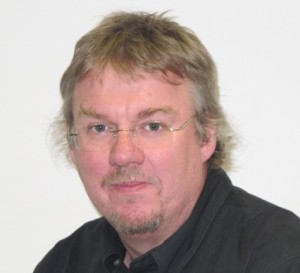
Mass spectrometry is an analytical technique that can be used for the determination and quantification of molecules. Chemicals can be specifically measured in the presence of many other compounds, and this makes the technique ideally suited for the determination of molecular biomarkers in physiological specimens.
This presentation will focus on the use of mass spectrometric methods in use in the clinical environment. Future possibilities will also be examined where the technology may play a more direct role in clinical diagnostics during surgery.

How And When Did The Earth Develop Into A Habitable Planet?
Monday 26th May 2014
Speaker: Ray Burgess
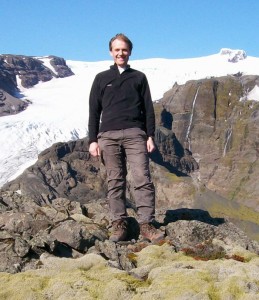
Dr Burgess is an isotope geochemist in the School of Earth, Atmospheric & Environmental Science at Manchester University. He will discuss possible answers to the above question based on recent studies of the Earth’s most ancient rocks, minerals and atmospheric gases.

From Fukushima to Outer Space – Threats and Opportunities for the UK Nuclear Industry in the 21st Century
Monday 28th April 2014
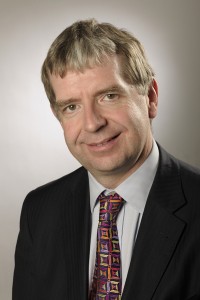
Speaker: Adrian Bull
The nuclear industry is rarely far from the news. Whether it is nuclear’s current and future role in providing the secure, low-carbon electricity which UK homes and businesses need, the management and cleanup of the industry’s legacy at sites such as Sellafield, the advances in technology associated with this work or – as witnessed so dramatically in 2011 at Fukushima – a serious incident at a nuclear site, this “nuclear” word propels a story into the headlines.
This talk will look at what happened at Fukushima, how it has affected plans for new nuclear reactors in the UK, how the UK’s National Nuclear Laboratory fits into the picture and how some surprising connections are being forged between the nuclear industry and other sectors through technology transfer.

Psychology of Parenting – Can watching TV make you a better parent?
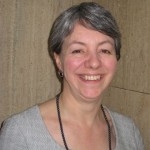
Monday 24th March 2014
Speaker: Rachel Calam
Rachel Calam is the Professor of Child and Family Psychology and Head of the School of Psychological Sciences, University of Manchester.
Rachel will talk about parenting and how her work on TV and the media has shown ways of helping parents cope.

How Small Can You Get? Entering & Defining the Nano World
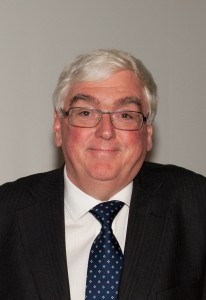
Monday 24th February 2014
Speaker: Paul O’Brien
This discussion aims to explore the current interest in what might best be described as ‘Things Nano’. The discourse begins by looking at the origins and definitions of nano-science and nano–technology. Definitions of the so called ‘Bottom-up’ and ‘Top-down’ approaches are discussed. Examples of nano-synthesis will be discussed as will ideas influencing our perceptions of the area and the potential importance of technologies based on nano-dimensional objects.

Brain Imaging – Human Reward Systems
Monday 27th January 2014
Speaker: Rebecca Elliot
How do our brains respond to feeling good? Brain imaging techniques have led to huge progress in understanding the brain basis of human reward systems. We are able to map responses to a range of rewards, and show how complex social rewards depend on similar brain mechanisms to basic rewards such as food. We are also able to use these techniques to help understand what happens when normal responses to rewards break down, which is important in studying mental health problems, including depression, eating disorders and addiction.
Busking Science: Fostering play and inspiration for all in science communication
Monday 25th November 2013
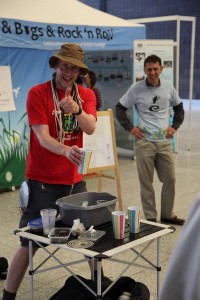
Speaker: David Price
“Science busking at its best can be a wholly open and none judgemental invitation to play and investigate the world around us”
David Price from science made simple travels around the world as a performer and trainer in the art and craft of science busking. Join David in this entertaining and interactive session, as he takes a look at the uses and abuses of this devastatingly effective means of science communication, that can take science to the people where ever they may be.
Making Molecules Dance with Light: Biospectroscopy in Research and Medicine

Monday, 28th October, 2013
Speaker: Dr Ewan Blanch
Biospectroscopy encompasses a range of techniques that use light to study biological systems. In this talk I’ll outline how a number of spectroscopies (e.g. Raman, infrared) are used to study questions in biology and medicine, including;
i) what happens when a protein unfolds?
ii) are there better ways to screen for cancer than relying on biopsies?
iii) is there life on other planets?
Vikings, Boats and Burials: Recent discoveries in Ardnamurchan, Western Scotland
Monday, 23rd September, 2013
Speaker: Hannah Cobb
In summer 2011 the Ardnamurchan Transitions Project team discovered the first intact Viking boat burial on the UK mainland. The material culture from this burial is incredibly rich and, as post-excavation analysis continues, unprecedented levels of preservation and some fascinating details about the burial are emerging. This talk will present our findings and some of the exciting new information that we are gathering from the ongoing conservation work currently being undertaken.
However, our work in the area has shown that the boat burial is only one chapter in a longer story about the small, unassuming bay in which it was found. As early as four thousand years before the Viking was buried in his boat in this bay, other people were buried here in even more impressive monuments, and this continued for some time. In this talk I will elaborate on this narrative, setting the finding of the Viking boat burial in its broader chronological context.
But more than simply telling the story of this beautiful and remote part of Scotland, Hannah will draw upon the evidence to examine the wider geographical connections these people had and question what brought them back to this place time and again, in life and death, from the Neolithic to the Viking period.

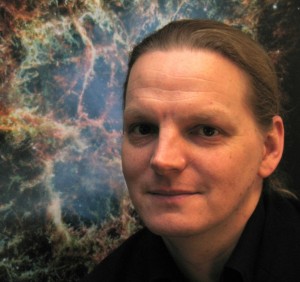
The Asteroid Threat
Monday, 22nd July, 2013
Speaker: Andy Newsam
Asteroids impacts happen, but how big is the threat to humanity? What are we doing about it? And what more (or should) we be doing?

Big Physics to Look at the Past
Monday, 24th June, 2013
Speaker: Andy Smith
We have heard a lot in recent years about big physics projects such as the Large Hadron Collider at CERN. The aims of these experiments may seem esoteric, but other, equally large and complex machines using the same technologies are in widespread use across the world for many different avenues of scientific research. One branch of science that is now benefitting from this progress is archaeology, where a deeper understanding of historic materials is helping historians to better understand the early technologies used to make them and conservators in understanding the ways in which time changes historic artefacts.
This talk is not going to talk about the LHC or other large physics machines, but will look instead at some of the historical studies that the current generation of synchrotron and particle sources are being used for. Topics will include the conservation of Henry VIII’s flagship, the Mary Rose; the technologies developed by medieaval Islamic potters to make highly decorated lustreware, and how a wooden shovel has survived in the copper mines of Alderley Edge since the bronze age.

Plants to Personalised Medicine; A Genetic Tale
Monday, 27th May, 2013
Speaker: David Hughes
David will tell the story of DNA sequencing starting with Arabidopsis and moving to the human genome project; the race between Craig Venter and Sir John Sawston (amongst others), why it was won and what it meant; gene therapy, the successes and the nobel prize in 2008. Finishing with personalized medicine, what it means and why it’s important.

Accelerating Proton Therapy in the UK
Monday, 22nd April, 2013
Speaker: Hywel Owen
Successful treatment of cancer is one of the great challenges in medicine today, and radiotherapy is one of the principle methods used to eliminate tumours. The majority of radiotherapy treatments performed today are done using intense X-rays, but proton and ion treatments are now being widely adopted around the world. These heavy particles have particular advantages when irradiating tumours, but require larger and more expensive particle accelerators to make them, plus more careful consideration of where the radiation is directed. In this presentation I will discuss the exciting plans underway to provide two major new proton treatment centres in the UK, talk about the challenges that need to be solved to make best use of this treatment method, and how Manchester University is helping that to be achieved.

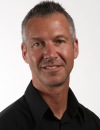
Amphibian Conservation in Action
Monday, 25th March, 2013
Speaker: Andrew Gray

Andrew Gray, Curator of
Herpetology at The Manchester Museum, will present a talk on his
amphibian conservation work. Drawing on his wealth of experience working
with neotropical amphibians in the field and in captivity, Andrew’s
presentation will cover many aspects of conservation, including captive
husbandry, research and education. It will detail his personal
experiences working to conserve some of the world’s most Critically
Endangered species, and offer those attending the talk the rare
opportunity to see some live specimens of the species concerned.
The Inner Secrets of the Universe: the Story of Elementary Particle Physics
Monday, 25th February, 2013
Speaker: Fred Loebinger
Scientists have long been attempting to find the basic building blocks which make up the Universe. This quest has prompted the development of large particle accelerators such as the Large Hadron Collider at CERN, and has reached the strange sub-nuclear world of quarks, gluons and leptons. The talk will give an insight into the development of the subject, with a particular bias to the prominent part played by Manchester scientists. The latest discoveries, including the Higgs Boson, and pointers to the future will also be reviewed.

Do we need Shale Gas and what would that mean?
Monday, 28th January, 2013
Speaker: Peter Styles
Lets assume,that we need gas for the foreseeable future: to cook with (70%) and to generate electricity (47%) until we can economically provide 90 Gigawatts of reliable, carbon-free energy. The North Sea no longer provides enough by 400 TWh.

Where can we sustainably and ethically source our gas? Shale gas provides a solution – but is it one we want?
The Arsonist, the Martian, the Cat and the Coke….oh and Dwain
Monday, 26th November, 2012
Speaker: Tony Bristow, AstraZeneca
Have you ever wondered what links Martians to Olympic athletes?
Cats to cocaine? Surgery to the Shroud of Turin? Pizza to forensic
science?
In this presentation all will be revealed. We will learn about
one of the most important and widely used techniques in analytical
science and how it used in ways that directly affect our lives.

Graphene – Unexpected Science in a Pencil Trace
Monday, 22nd October, 2012
Speaker: Dr Aravind Vijayaraghavan

Rehydroxylation (RHX) dating: a new method for the archaeological dating of pottery
Monday, 24th September, 2012
Speaker: Dr Moira Wilson, Manchester University

Are we alone? The search for life beyond the earth.
Monday, 23rd July, 2012
Speaker: Ian Morison, Jodrell Bank
Ian spoke about his involvement in SETI, the search for extraterrestrial intelligence, and how unlikely we are to find ET.

The Quantum Universe – everything that can happen does happen.
Sunday, 24th June, 2012
Speaker: Jeff Forshaw, Professor of Theoretical Physics, University of Manchester
Jeff spoke about quantum physics, relativity and the large hadron collider. ‘The Quantum Universe: Everything that can happen does happen‘ by Brian Cox and Jeff Forshaw is available from Penguin.
Personalised Medicine – how new biology could revolutionise treatment
Monday, 28th May, 2012
Speaker: Ian Wilson
In Ian’s fascinating talk he mentioned a few books:
- The Emperor Of All Maladies, Siddhartha Mukherjee (Hardback: 9780007250912, Paperback: 9780007250929)
- Life Decoded, J.Craig Venter (Hardback: 9780713997248, Paperback: 9780141014418)
- The Common Thread, John Sulston & Georgina Ferry (Hardback: 9780593048016, Paperback: 9780552999410)
- The Language of Life: DNA and the Revolution in Personalized Medicine, Francis S. Collins (Hardback: 9780061733178, Paperback: 9781846683534)
- The Double Helix: Personal Account of the Discovery of the Structure of DNA, James D. Watson (Hardback: 9780297760429, Paperback: 9780753828434)
